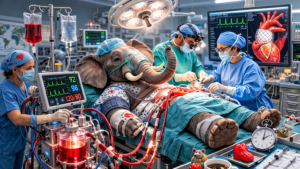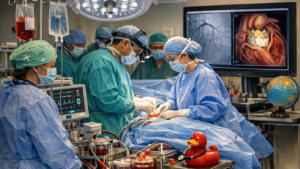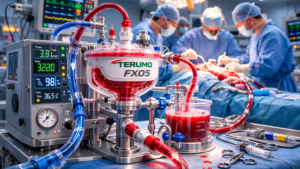Purpose: On-pump coronary artery bypass grafting (CABG) is one of the most common revascularization surgical therapies for coronary artery disease (CAD). However, owing to the use of cardiopulmonary bypass (“on-pump”), the body develops systemic inflammatory response syndrome, which leads to the risk of morbidity and mortality. This study aimed to determine the perioperative outcomes of patients who underwent on-pump CABG surgery using the systemic immune-inflammation index (SII).
Patients and methods: This single-center retrospective study used secondary data from patients’ electronic medical records and medical records archives at the National Cardiovascular Center Harapan Kita, who underwent on-pump CABG from January 2019 to December 2022. A total of 1056 on-pump CABG procedures were performed after exclusion. Lymphocyte, segmental neutrophil, and platelet counts from the preoperative data were used to calculate the SII values. An SII cutoff value of 528.715 × 103/mm3 divided the patients into two groups.
Results: The SII value of 1056 patients were calculated, among which 490 (46%) patients had a preoperative SII value of ≥528.715 × 103/mm3. Multivariate analysis showed that a high SII significantly prolonged the duration of surgery (OR 1.005, 95% CI 1.003-1.006) and cardiopulmonary bypass (CPB) time (OR 1.007, 95% CI 1.005-1.009). High SII values significantly predicted prolonged mechanical ventilation (OR 6.154, 95% CL 3.938-9.617), intensive care unit (ICU) stay (OR 6.332, 95% CL 4.232-9.474), and hospital stay (OR 3.517, 95% CL 2.711-4.562). Regarding other perioperative outcomes, a high SII significantly predicted the risk of postoperative atrial AF, cardiac arrest, acute myocardial infarction, and mortality.
Conclusion: A high preoperative SII value can predict morbidity and mortality in patients undergoing on-pump CABG surgery.
Keywords: morbidity; mortality; on-pump coronary artery bypass graft; systemic immune-inflammation index; systemic inflammation.







